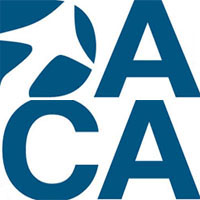— from Eleanor Hoague —
 Because of the level of interest on Orcas in matters of immigration, what follows is Northwest Immigrant Rights Project’s excellent and understandable reprise of the impact of Trump’s DACA revocation.
Because of the level of interest on Orcas in matters of immigration, what follows is Northwest Immigrant Rights Project’s excellent and understandable reprise of the impact of Trump’s DACA revocation.
This presidential action is not going to be accepted at face value, and already there are several AG’s who are filing a lawsuit to stop the implementation. Further there several federal representatives and senators who are working to save this program by passing federal legislation. We are just at the beginning.
Northwest Immigrant Rights Project – Community Advisory – 09/05/17
Basics: Deferred Action for Childhood Arrivals (DACA) has been a program established by President Obama in 2012 that granted a form of temporary protection from deportation known as “deferred action” to undocumented immigrants who came to the U.S. before the age of 16, resided in the U.S. since June 2007 and met other requirements.
On September 5, 2017, the Trump Administration announced that it would be ending the program effective as of March 5, 2018. The Administration stated that it intends the six-month period before the expiration of the program to provide an opportunity for Congress to enact legislation that might provide protection to DACA recipients. NWIRP strongly supports legislation that would provide DACA recipients and other undocumented individuals a path to citizenship and sincerely hopes that such legislation is enacted in the coming months. However, we are providing the advice below to current DACA recipients or potential applicants to address questions if the program ends and no legislation is enacted.
I am a current DACA recipient, what should I do now? If your current DACA status and work permit expire on or before March 5, 2018 and you have not already submitted a renewal application, we urge you to submit your renewal application so it is received by DHS by October 5, 2017 as this is a new deadline set by the Administration. We recommend that you get legal assistance for this renewal process. If you cannot afford a private attorney, please visit www.nwirp.org/daca for resources.
In addition, if you have not already done this recently and regardless of when your DACA status expires, we recommend that you consult with an immigration attorney or accredited representative to explore whether you might qualify for another avenue to obtain immigration status. We recommend this of every DACA recipient but we think it is particularly important if you:
Are married to a U.S. citizen or lawful permanent resident;
Have been the victim of a crime such as domestic violence, sexual assault or others in the US; or
Are under 21 years of age.
If you cannot afford to have a consultation with a private immigration attorney, please visit
www.nwirp.org/daca for resources.
I am a current DACA recipient, is there a risk that I will be deported if my DACA status ends? We believe it is very unlikely that the Trump Administration will try to suddenly place all or most DACA recipients in deportation (removal) proceedings even after the DACA program ends. However, if the program does end and current DACA recipients lose that status, they will again be subject to immigration enforcement like they were before being granted DACA. The highest risk will be for any DACA recipients who had a deportation order on their record before obtaining DACA or who have been arrested (or are arrested in the future) by the police, even for minor offenses. If a DACA recipient is detained or questioned by immigration authorities, we recommend that they do not answer any questions and seek legal assistance as soon as possible.
I have DACA and am currently working, should I tell my employer about my status? We do not recommend that current DACA recipients tell their employers that they have DACA status. You are certainly not required to tell your employer that you have DACA even if your work permit expires. It is the employer that is required to re-verify your work authorization status and the employer should not take adverse action against you as long as your work permit remains valid.
I have DACA and am currently pursuing higher education or planning to, will the end of DACA affect my ability to attend college or get state education benefits? Even if you lose your DACA status, this will not affect your eligibility to attend college in Washington State. If you meet the criteria of HB 1079 (explained here), you will also remain eligible to pay in-state (resident) student rates and to qualify for the State Need Grant program. The requirements of private scholarships or other programs may vary, however.
If I lose my DACA status, will I be able to keep my driver’s license and social security number? Even if you lose your DACA status, you will continue to be eligible for a Washington State driver’s license and/or state ID if you reside here. Because of recent changes to state law, we anticipate that, starting in July 2018, drivers licenses issued to Washington residents who are not U.S. citizens will be marked as “not valid for federal purposes” but this would have happened even if you had DACA status or not. Also, even if you lose your DACA status, the social security number that was assigned to you will continue to be yours and you can continue to use it for things like banking or paying taxes. However, the fact that you have a valid social security number will not mean that you will have permission to work if your work authorization has expired and you do not have another type of immigration status.
I have DACA and am currently receiving public assistance, will I still be able to receive it if I lose DACA? It depends on the type of assistance you are receiving. Some state-funded public assistance programs in Washington are available to DACA recipients but not to undocumented individuals without DACA. It is possible that you may no longer be eligible to receive that assistance once your DACA status expires.
However, you should be able to continue receiving it while your DACA status remains valid, so long as you continue to meet any other eligibility requirements.
I applied for DACA but my application is still pending, what should I do? If you are represented by an attorney, you should consult with your attorney. The Department of Homeland Security (DHS) stated that they will continue to consider initial applications for DACA that were pending as of September 5, 2017.
I am in removal (deportation) proceedings, what should I do? If you are represented by an attorney, you should contact that attorney. If you are not, you should consult with an attorney or accredited representative as soon as possible. If you cannot afford an attorney, you can contact NWIRP’s offices at the numbers listed below.
I am a current DACA recipient and was planning to travel outside the U.S. under advanced parole, what should I do? We urge those considering traveling outside the U.S. under advance parole to talk to an attorney or accredited representative before doing so. If you have not already applied for advanced parole,
DHS stated that they will not grant advanced parole under DACA after September 5, 2017.
I never applied for DACA but think I would have qualified, what should I do? If you have never applied to the DACA program, you should not apply to the program at this point, as no new applications will be accepted. Our recommendation is that you consult with an attorney or accredited representative to understand if you have any other options under immigration law.If you cannot afford to hire a private attorney, please visit www.nwirp.org/daca for resources.
NWIRP offices:
Western WA (Seattle) – 206-587-4009, www.nwirp.org
**If you are reading theOrcasonian for free, thank your fellow islanders. If you would like to support theOrcasonian CLICK HERE to set your modestly-priced, voluntary subscription. Otherwise, no worries; we’re happy to share with you.**









Thank you, Ellie, for your informative and humanistic response to this aggressive assault on human rights in the US. DACA is a program that deserves respect and protection. This Administration is dismantling protections and safe-guards of fine citizens who contribute to our society in highly productive ways.
Thanks for providing this helpful information, Elly. Apparently the Trump administration did not even follow correct administrative procedure in canceling the program. Public notice, a chance for public comment, and responses to these comments by the agency in question are required. As usual, the Trump administration acted impulsively with little consideration for what is allowed and what isn’t. Doubtless many lawsuits will be filed to stop this action, and we can only hope the judges uphold correct procedure.